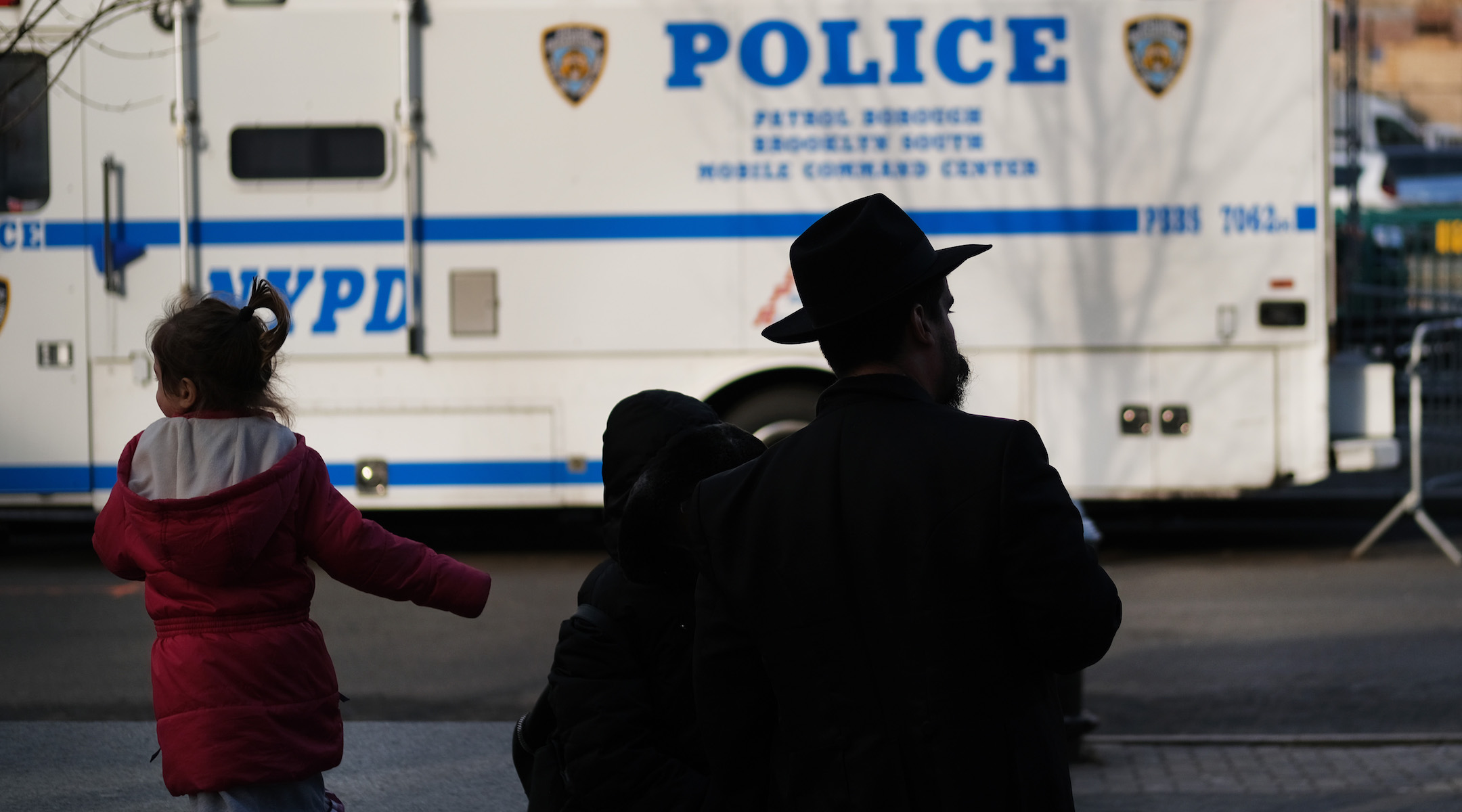(JTA) — A new FBI report found that anti-Jewish incidents increased nearly 20% in 2021 relative to 2020, but decreased relative to prior years.
The updated FBI statistics released Monday counted 817 anti-Jewish criminal offenses reported by local law enforcement agencies in 2021, up from 683 in 2020 — a year when people largely stayed off the streets for a substantial period due to the COVID-19 pandemic. The 2021 numbers, however, represent a 15% decline from 2019, when the FBI reported 963 hate crimes, as well as a slight decline from 2018, when FBI statistics show 847 hate crimes.
Overall, the report showed a total of more than 10,800 total hate crimes — the highest number in decades. As in previous years, anti-Jewish incidents comprised the majority of the 1,590 hate crimes based on religion.
This is the second report the FBI has released regarding hate crimes in 2021. An initial report in December did not include data from law enforcement agencies in major cities such as New York and Los Angeles. That report said there were only 324 anti-Jewish hate crimes in 2021, a number Jewish organizations said was a massive undercount. Other tallies of antisemitic incidents — such as the Anti-Defamation League’s annual audit — had shown an increase.
The two reports on 2021 demonstrate the pitfalls of the FBI data, which relies on reports of criminal offenses from local law enforcement agencies. An increasing number of cities are declining to share data outright. But the lack of data from major cities in the initial report, the FBI said, was due to a transition to a new reporting system. The transition, the FBI said in a statement on its website, “resulted in an inadequate representation of bias-motivated criminal incidents in the nation.”
The updated data released on Monday still has significant gaps. Data reported from Chicago, for example, represents only two quarters of 2021. The ADL called on Congress to mandate that state and local law enforcement agencies report hate crime data to the FBI in order to receive federal funding.
“Moving forward, law enforcement agencies must urgently commit to hate crime data collection and reporting,” read a statement from ADL CEO Jonathan Greenblatt. “Absent comprehensive and inclusive data, policymakers will lack the critical information that is needed to address these concerning trends.”
The data is based on criminal offenses reported to the FBI by law enforcement agencies. In some cases, an antisemitic incident can include multiple criminal offenses. Not all incidents initially considered hate crimes are ultimately prosecuted that way. For example, a San Francisco man charged with brandishing a gun inside a Jewish center there last month was initially charged with a hate crime, but a judge dropped the hate-crime portion during an early court hearing. It is not clear whether such an incident would be reflected in the FBI data.
JTA has documented Jewish history in real-time for over a century. Keep our journalism strong by joining us in supporting independent, award-winning reporting.






